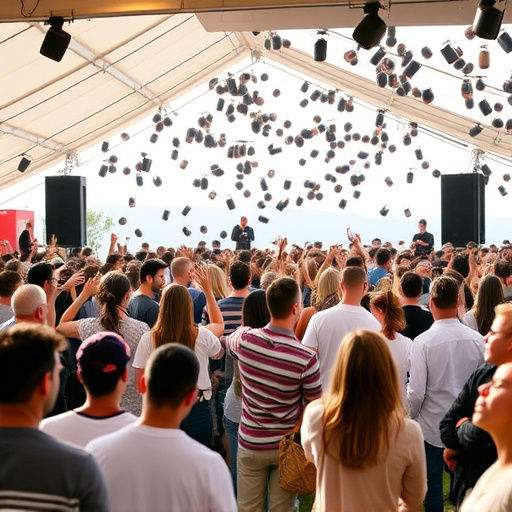Content Overload: When Eco Events Become Just Another Social Media Moment Instead of a Purposeful Movement
- Avion W. Anderson
- Jul 6
- 4 min read
In today’s digital-first world, eco-conscious and sustainable events have found their way into the global spotlight. Festivals, conferences, retreats, weddings, and even intimate gatherings proudly promote their “green values” through perfectly curated Instagram feeds and viral reels.
What started as a movement to create meaningful, planet-friendly change is increasingly at risk of becoming diluted by surface-level content, curated aesthetics, and fleeting digital trends.
The question is this: Are we truly advancing sustainability, or are we just adding more noise to an already cluttered digital landscape?

The Good: Awareness Has Never Traveled Faster
This reach is powerful. It’s needed. But it’s only the first step. Awareness without action is just noise. Let’s be honest—social media has done wonders for amplifying eco-conscious initiatives. Social media has played a pivotal role in spreading awareness about environmental issues and sustainable practices in the event industry. Eco events—whether beach cleanups, zero-waste festivals, green weddings, or sustainable corporate retreats—can reach global audiences in seconds.
When done intentionally, social media helps:
- Educate wider audiences about the importance of eco-conscious choices.
- Showcase real-world examples of sustainable practices in action.
- Inspire other brands, businesses, and communities to follow suit.
- Sustainable event practices become visible and accessible.
- Brands, businesses, and individuals are inspired to try eco-friendly alternatives.
- Environmental awareness becomes part of mainstream conversations.
- But raising awareness alone is not enough if it lacks authenticity or follow-through
The Bad: When Sustainability Becomes a Stage, not a Standard
When sustainability becomes part of the marketing strategy instead of the mission, we fall into the trap of greenwashing rather than meaningful action.
Too often, eco events are reduced to performance sustainability, where the focus is more on how green the event looks rather than how sustainable it truly is.
The problem begins when the look of sustainability is prioritized over the lived reality of it. You’ve seen it before:
- Beautiful displays of reusable cups, compostable decor, or lush greenery... but what about the logistics behind the scenes?
- Captions filled with trendy hashtags like #EcoChic, #SustainableVibes, or #GreenGoals, yet lacking transparency about actual sustainable practices.
- Events that promote one green initiative but ignore the larger environmental footprint—single-use plastic backstage, energy-guzzling lighting, or long-distance shipping of “eco-friendly” products.
These practices contribute to a shallow form of sustainability—one that celebrates the optics but ignores the impact.

The Ugly: Content Overload & Eco Fatigue
In the age of content overload, audiences are constantly bombarded with posts that look and sound the same.
Even with the best intentions, eco event content can start to feel repetitive, performative, and disconnected from the real-world environmental challenges we're facing.
The internet is flooded with eco-event content that, frankly, starts to look the same. Photo after photo, caption after caption, brand after brand—it's easy to feel overwhelmed or even skeptical.
This constant bombardment can lead to:
- ⚠️ Eco fatigue—where audiences tune out messages about sustainability because they feel repetitive, insincere, or overly polished.
- ⚠️ A loss of trust, as people question whether these eco events are truly making a difference or simply cashing in on a trend.
- ⚠️ A diluted message, where the original purpose—protecting the planet—is overshadowed by the pursuit of likes and followers. If sustainability is reduced to a photo op, we miss the point entirely.
When eco events become just another filtered moment in someone’s feed, we risk turning a purposeful movement into meaningless digital noise.
The Solution: Shift from Moments to Movements
If we want eco events to drive real change, we must refocus on intentional storytelling and impact-driven action.
So, how do we ensure eco events remain impactful beyond social media algorithms?
✅ Be Transparent About the Process. Share the journey of creating a sustainable event—the wins, the challenges, and the lessons learned.
✅ Educate, Don’t Just Entertain. Use your platforms to share tips, tools, and actions people can apply in their daily lives.
✅ Prioritize Purpose Over Aesthetics. Gorgeous photos are great, but they should reflect authentic sustainability efforts, not staged optics.
✅ Highlight the Community, Not Just the Brand. Celebrate the partners, volunteers, and local communities that make eco events possible.
✅ Focus on Long-Term Impact. Design your events to leave a legacy—whether that’s reducing waste, planting trees, empowering local eco businesses, or supporting environmental causes.

Conclusion: Purpose Over Performance: The Heart of Sustainable Events
Eco events should be catalysts for change, not just content generators. In a digital world obsessed with moments, let's work toward movements that matter.
At the end of the day, an eco-event’s real value isn’t how well it trends online. It’s in how it transforms communities, inspires action, and contributes to the health of our planet.
As eco event leaders, content creators, and conscious brands, we have a responsibility to use our platforms to build trust, inspire change, and cultivate communities that take environmental stewardship seriously.
Let’s commit to creating eco-conscious events that are movements, not just moments. Let’s use content to connect, educate, and inspire—not just to perform.
💬 What do you think?
Have you seen examples of eco events done right—or done wrong? What would you like to see more (or less) of in sustainable event storytelling?



Comments